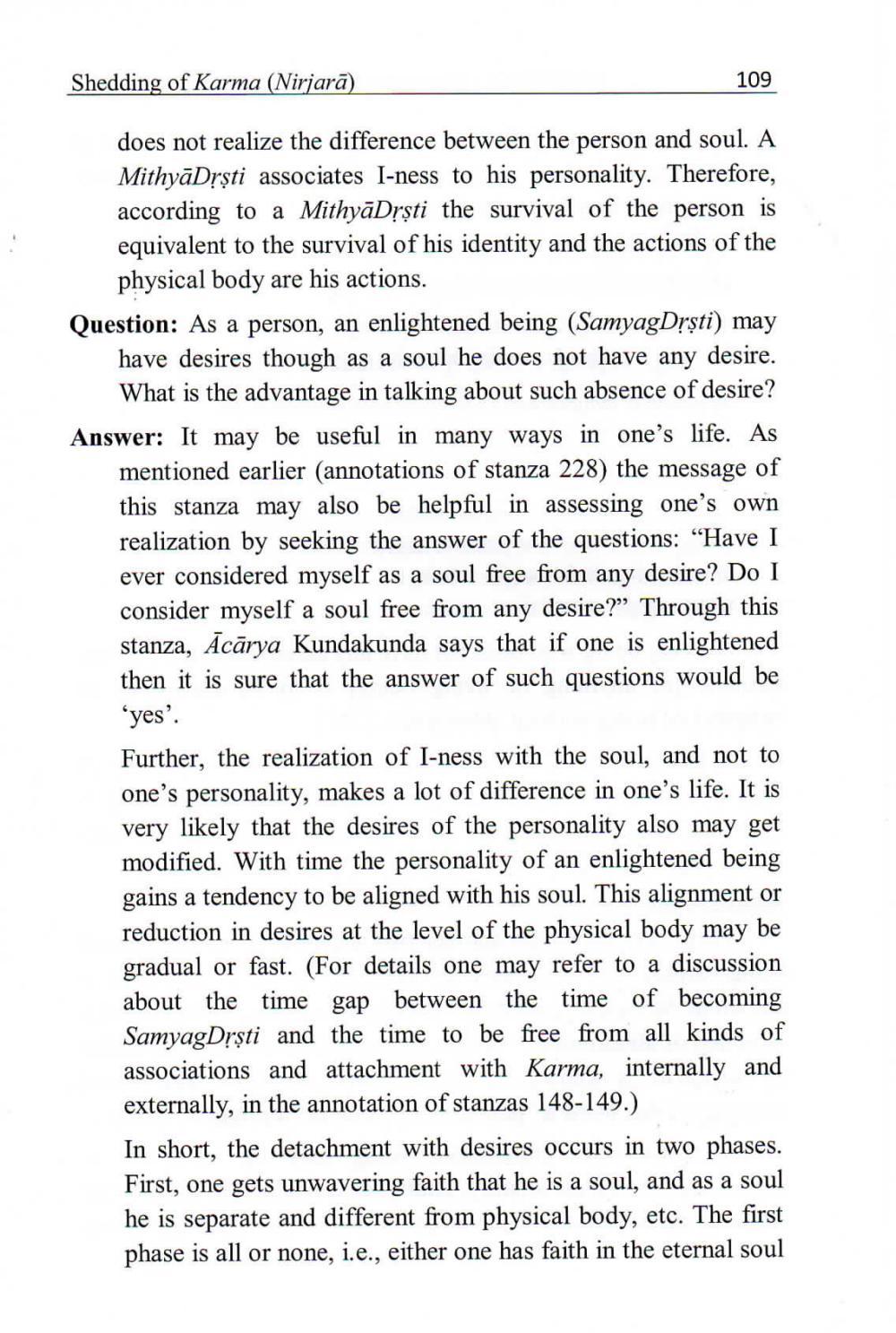________________
Shedding of Karma (Nirjarā)
109
does not realize the difference between the person and soul. A MithyāDrști associates I-ness to his personality. Therefore, according to a MithyāDrşti the survival of the person is equivalent to the survival of his identity and the actions of the
physical body are his actions. Question: As a person, an enlightened being (SamyagDrști) may
have desires though as a soul he does not have any desire.
What is the advantage in talking about such absence of desire? Answer: It may be useful in many ways in one's life. As
mentioned earlier (annotations of stanza 228) the message of this stanza may also be helpful in assessing one's own realization by seeking the answer of the questions: “Have I ever considered myself as a soul free from any desire? Do I consider myself a soul free from any desire?” Through this stanza, Ācārya Kundakunda says that if one is enlightened then it is sure that the answer of such questions would be 'yes'. Further, the realization of I-ness with the soul, and not to one's personality, makes a lot of difference in one's life. It is very likely that the desires of the personality also may get modified. With time the personality of an enlightened being gains a tendency to be aligned with his soul. This alignment or reduction in desires at the level of the physical body may be gradual or fast. (For details one may refer to a discussion about the time gap between the time of becoming SamyagDrști and the time to be free from all kinds of associations and attachment with Karma, internally and externally, in the annotation of stanzas 148-149.) In short, the detachment with desires occurs in two phases. First, one gets unwavering faith that he is a soul, and as a soul he is separate and different from physical body, etc. The first phase is all or none, i.e., either one has faith in the eternal soul




